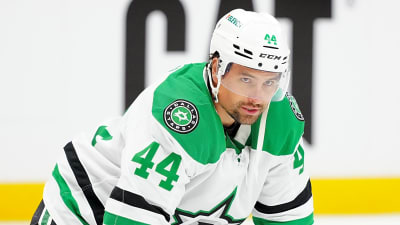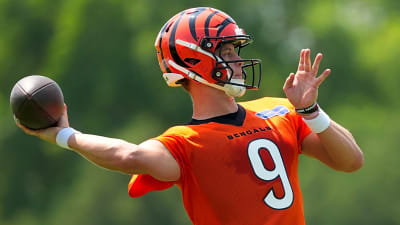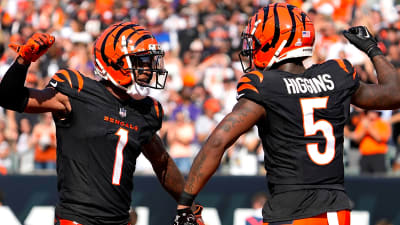
Which star will be next to make business decision to retire from NFL?
Incessant chatter about Patrick Mahomes' otherworldly skills and whether the 49ers are balanced enough to take down the Chiefs are topics du jour in the NFL. But the recent retirement announcement of a 28-year-old superstar remains front and center in my brain.
Carolina linebacker Luke Kuechly’s decision may have qualified as a surprise, but it should hardly have come as a shock. He joined elite talents Rob Gronkowski, Andrew Luck, Kam Chancellor and Patrick Willis, to name a few, to walk away from the game at 30 or younger in the past five years. It doesn’t happen often enough to be an epidemic or a hot trend, but it is noticeable.
All-Pros who may previously have defined the league for 12 years or more are now retiring before they’ve logged 10. Kuechly’s retirement after eight seasons in the NFL is another example of the changing relationship some players -– stars in particular -– have with the sport. Idealistic notions like playing for the love of the game take a backseat to a more businesslike, transactional relationship with football.
This generation of pros is more aware of the inherent risks of the game than those who preceded them, and seem more willing to exit on their own terms than punish their bodies for a few extra years of paychecks.
I asked former Bills and Steelers linebacker Arthur Moats, who was 29 when he played his final NFL snap in 2017, about the relationship players have with the sport now compared with those who came before them.
“I think 10-15 years ago and beyond, those guys didn’t look at football from a business perspective, they looked at it as a sport,” Moats said. “They tried to view it in pure terms. That’s why guys played longer and through more injuries, because it was for love of the game.” Moats suggested that dynamic has changed recently.
“Players now view it more as a business," he said, "and they want to utilize [football] to change their standing in life, but they want to minimize the health risk as much as possible. They are more aware of their personal brand and of monetizing their careers in other ways.
“I don’t think you can blame guys that want to get their one big contract and then walk away."
Social media has allowed players -– stars and down-the-liners alike -– to show off their personalities and wit in ways they never could before. It has given them more agency over endorsement opportunities, and allowed them to connect with fans in a more direct way.
Pittsburgh wide receiver JuJu Smith-Schuster showed just how big the money can be when he accidentally revealed that he was paid $100,000 by Twitch, a streaming platform, to watch a Thursday night NFL game with another streamer. It’s easier than ever to be an influencer, and by extension, an earner.
Another time-honored tradition of the game – playing through pain – is also something no longer seen as noble. Or, more accurately, choosing to not endure more trauma is not stigmatized or viewed negatively.
Former Steelers cornerback Ike Taylor was emphatic in his praise of Kuechly’s decision. “I love it when young guys set an amount of money in the bank that they can retire on, understand about dealing with concussions, and [retire] on their own. There are a lot of guys retiring at 28, 29 years old, and I tip my hat to them.”
Taylor, who retired at 34 in 2015 after 12 seasons in the NFL, said he was happy that Kuechly wasn’t “fighting it” or trying to hang on for a few more seasons. Moats echoed this sentiment, lauding Kuechly’s concern for his well-being above all else.
“I was surprised, but at the same time I understood it, because of what he has dealt with as far as concussions," Moats said. "He’s young, he’s made a lot of money, and I think he made a smart decision for himself.”
Kuechly, who suffered at least two serious concussions during his career, knew his limits and was able to act in his own self-interest, making a decision that went against everything he had programmed himself to do from an early age. His instinct for self-preservation won out over his desire to keep playing a game that had given him much, one that he likely could have excelled at for a few more seasons.
It was clear to anyone who watched his video announcement that the decision gutted him, but that he made it in the first place was noteworthy. Football’s capacity to significantly improve the financial circumstances of almost anyone who makes it to a second contract ensures that there will always be a next man up. The NFL isn’t going to fold because of a lack of participation.
So savor the star power Sunday as you watch Nick Bosa, Travis Kelce, Fred Warner, George Kittle and others play. I’ll be doing the same. But in the back of my mind, I’ll also be wondering which one of them will be next to make a business decision to leave the game.
More must-reads:
- Talks over 17-game schedule could come down to new union president
- Report: Greg Olsen has Fox Sports analyst job if he wants it
- The 'Most Pro Bowl appearances by team' quiz
Breaking News
Trending News
Customize Your Newsletter
 +
+
Get the latest news and rumors, customized to your favorite sports and teams. Emailed daily. Always free!








